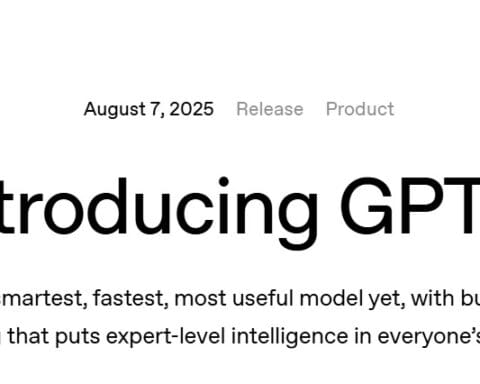Last Updated on February 17, 2025 10:24 am by Laszlo Szabo / NowadAIs | Published on February 17, 2025 by Laszlo Szabo / NowadAIs
Eric Schmidt: AI Misuse Poses Extreme Risk – Key Notes Section
- Eric Schmidt AI Warning: Eric Schmidt, former Google CEO, warns that AI misuse poses an “extreme risk” to society, emphasizing the need for responsible development and use.
- Risks of AI Misuse: Key dangers include cybersecurity threats, weaponization of AI, bias and discrimination, and job displacement.
- Mitigation Strategies: Proactive measures like regulation, collaboration, AI safety research, and public education are essential to address these risks.
Focus on AI Misuse
Artificial intelligence (AI) is one of the most transformative technologies of our time, but it also comes with significant risks. Eric Schmidt, the former CEO of Google and a prominent figure in the tech industry, has warned that the misuse of AI could pose an “extreme risk” to society. In this article, we’ll explore Schmidt’s concerns, the potential dangers of AI misuse, and what can be done to mitigate these risks.
Who is Eric Schmidt?
Eric Schmidt is a well-known name in the world of technology. He served as the CEO of Google from 2001 to 2011 and later as the executive chairman of Alphabet Inc., Google’s parent company. Schmidt has been a vocal advocate for the responsible development and use of AI. His insights carry significant weight, given his extensive experience in the tech industry and his involvement in shaping the future of AI.
The Promise of AI
AI has the potential to revolutionize industries, improve healthcare, enhance education, and solve some of the world’s most pressing problems. From self-driving cars to personalized medicine, the applications of AI are vast and promising. However, with great power comes great responsibility. While AI offers numerous benefits, its misuse could lead to catastrophic consequences.
Eric Schmidt’s Warning on AI Misuse
In a recent statement, Eric Schmidt highlighted the dangers of AI misuse, calling it an
“extreme risk”
to society. He emphasized that while AI can be a force for good, it can also be weaponized or used irresponsibly, leading to unintended consequences. Schmidt’s warning is not just about the technology itself but about how humans choose to use it.
One of the key concerns Schmidt raised is the potential for AI to be used in cyberattacks. Advanced AI systems could be exploited to launch sophisticated cyberattacks, disrupt critical infrastructure, or steal sensitive information. This could have devastating effects on governments, businesses, and individuals.
The Risks of AI Misuse
1. Cybersecurity Threats
As mentioned earlier, AI-powered cyberattacks are a significant concern. Hackers could use AI to automate attacks, making them faster, more efficient, and harder to detect. This could lead to widespread disruption and financial losses.
2. Weaponization of AI
Another major risk is the weaponization of AI. Autonomous weapons, powered by AI could be used in warfare, leading to ethical and humanitarian concerns. Schmidt has warned that such weapons could fall into the wrong hands, resulting in catastrophic outcomes.
3. Bias and Discrimination
AI systems are only as good as the data they are trained on. If the data contains biases, the AI system will likely perpetuate those biases. This could lead to discrimination in areas like hiring, lending, and law enforcement.
4. Job Displacement
While AI has the potential to create new jobs, it could also displace millions of workers. Industries that rely heavily on manual labor or repetitive tasks are particularly vulnerable. This could lead to economic inequality and social unrest.
What Can Be Done to Mitigate the Risks?
Eric Schmidt believes that proactive measures are needed to address the risks associated with AI misuse. Here are some steps that can be taken:
1. Regulation and Governance
Governments and international organizations need to establish clear regulations and guidelines for the development and use of AI. This includes setting ethical standards and ensuring accountability.
2. Collaboration Between Stakeholders
Tech companies, governments, and academia must work together to address the challenges posed by AI. Collaboration is key to developing safe and responsible AI systems.
3. Investing in AI Safety Research
More resources should be allocated to AI safety research. This includes studying the potential risks of AI and developing strategies to mitigate them.
4. Public Awareness and Education
Raising public awareness about the risks and benefits of AI is crucial. Educating people about how AI works and its potential impact can help foster a more informed and responsible approach to its use.
Conclusion
Eric Schmidt’s warning about the misuse of AI serves as a timely reminder of the challenges we face in the age of artificial intelligence. While AI has the potential to bring about positive change, it also poses significant risks if not managed responsibly. By taking proactive measures, we can harness the power of AI while minimizing its dangers.
As Schmidt aptly puts it,
“AI is a tool, and like any tool, it can be used for good or bad.”
It’s up to us to ensure that it’s used for the benefit of humanity.
Definitions Section
- Artificial Intelligence (AI): A branch of computer science focused on creating systems that can perform tasks requiring human-like intelligence, such as learning and decision-making.
- Cybersecurity Threats: Risks posed by malicious actors using technology to disrupt, damage, or gain unauthorized access to systems and data.
- Autonomous Weapons: Military systems that can select and engage targets without human intervention, powered by AI.
- Bias in AI: When AI systems reflect unfair prejudices present in the data they are trained on, leading to discriminatory outcomes.
Frequently Asked Questions (FAQ)
1. What is Eric Schmidt’s view on AI misuse?
Eric Schmidt believes that while AI has immense potential for good, its misuse poses an “extreme risk” to society. He highlights concerns like cyberattacks, autonomous weapons, and biased AI systems, urging for responsible development and regulation.
2. How can AI misuse impact cybersecurity?
AI misuse in cybersecurity can lead to sophisticated cyberattacks that are faster, harder to detect, and more damaging. Hackers could use AI to automate attacks on critical infrastructure, causing widespread disruption and financial losses.
3. What steps can be taken to reduce AI risks?
To mitigate AI risks, Eric Schmidt suggests implementing regulations, fostering collaboration between stakeholders, investing in AI safety research, and raising public awareness about AI’s benefits and dangers.









